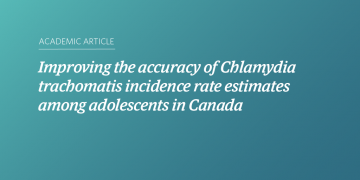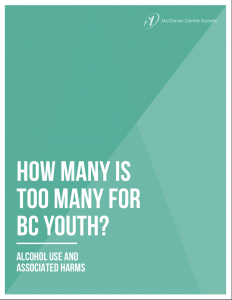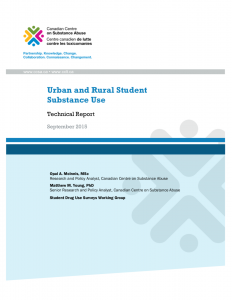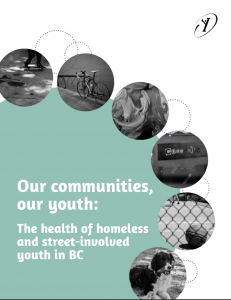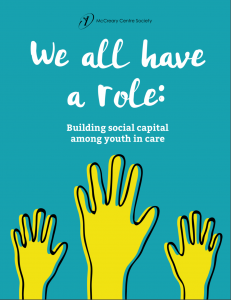Improving the accuracy of Chlamydia trachomatis incidence rate estimates among adolescents in Canada
Abstract In this study, the authors assessed the impact of adjusting for sexual activity on population-based chlamydia incidence and screening rates among adolescents in the province of British Columbia (BC), Canada. They estimated the proportion of adolescent males (15 years-18 years) and females (14 years-18 years) who had ever had sexual intercourse using data from […]
Living for the moment: Men consider risk practices following the death of a friend
Abstract The primary cause of death for men under the age of 30 is unintentional injury and, despite health‐promotion efforts and programme interventions, male injury and death rates have not decreased in recent years. Drawing on 22 interviews from a study of men, risk and grief, we describe how a risk‐related tragedy shaped the participants’ […]
How many is too many for BC youth? Alcohol use and associated harms
Although the legal drinking age in British Columbia is 19 years, many youth begin to experiment with alcohol before this age. Studies have shown that alcohol consumption by youth under the age of 19 is associated with an increased likelihood of involvement in health risks, such as a vehicle crash or a sexual or physical […]
Urban and rural student substance use: Technical report
Differences in economic, cultural, social and educational factors between urban and rural areas in Canada might influence behavioural and mental health outcomes. However, most research assessing differences in urban and rural patterns of substance use has been conducted in the United States. Within Canada, information is limited on whether students who attend urban and rural […]
Our communities, our youth: The health of homeless and street-involved youth in BC
Homeless and street-involved youth are among the most vulnerable populations in Canada and experience significant health inequities. The 2014 Homeless and Street-Involved Youth Survey (HSIYS) captured information from youth living in 13 diverse communities across British Columbia between October 2014 and January 2015. A total of 689 youth (aged 12–19 years) participated, from which we […]
We all have a role: Building social capital among youth in care
Research has shown the value of social capital in relation to an individual’s health, happiness, and improved life expectancy, as well as the benefits to a community of having social networks that can come together to support the community and make positive change happen. Using data from the 2013 BC Adolescent Health Survey which was […]
Sexual Health of Youth in BC
Adolescence is an important time in sexual development. It includes physical changes of puberty as well as changes in emotions and cognitive abilities. During this time, most youth develop romantic and sexual attractions, begin to understand their sexuality, and some enter their first romantic relationships. Some young people will also have sexual relationships. Legally the […]
